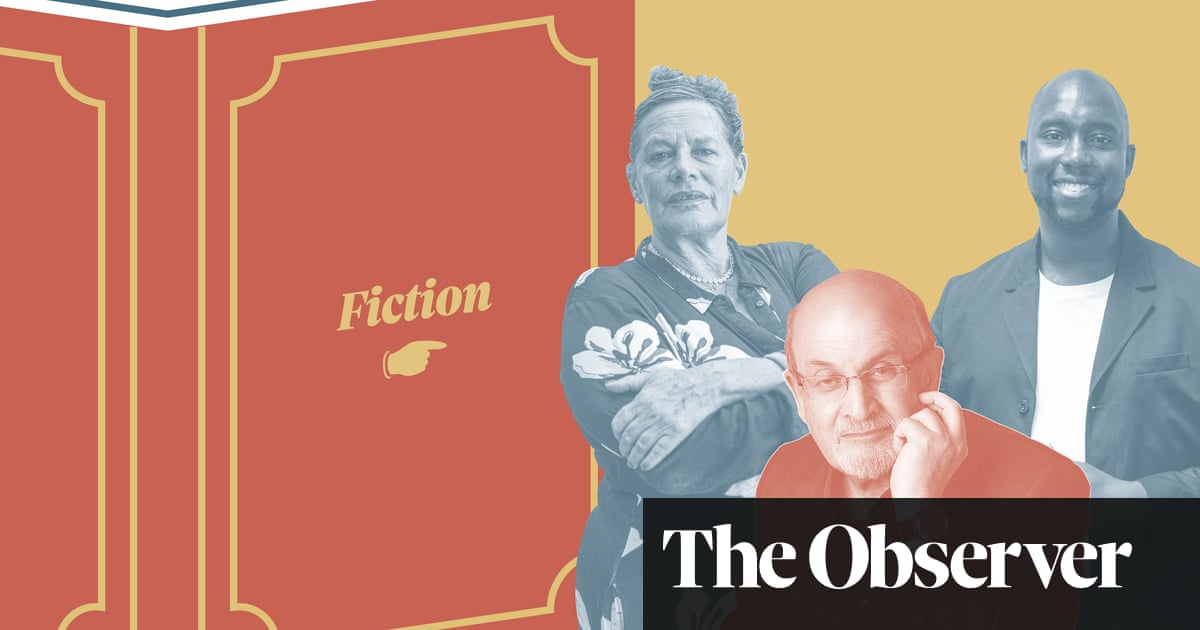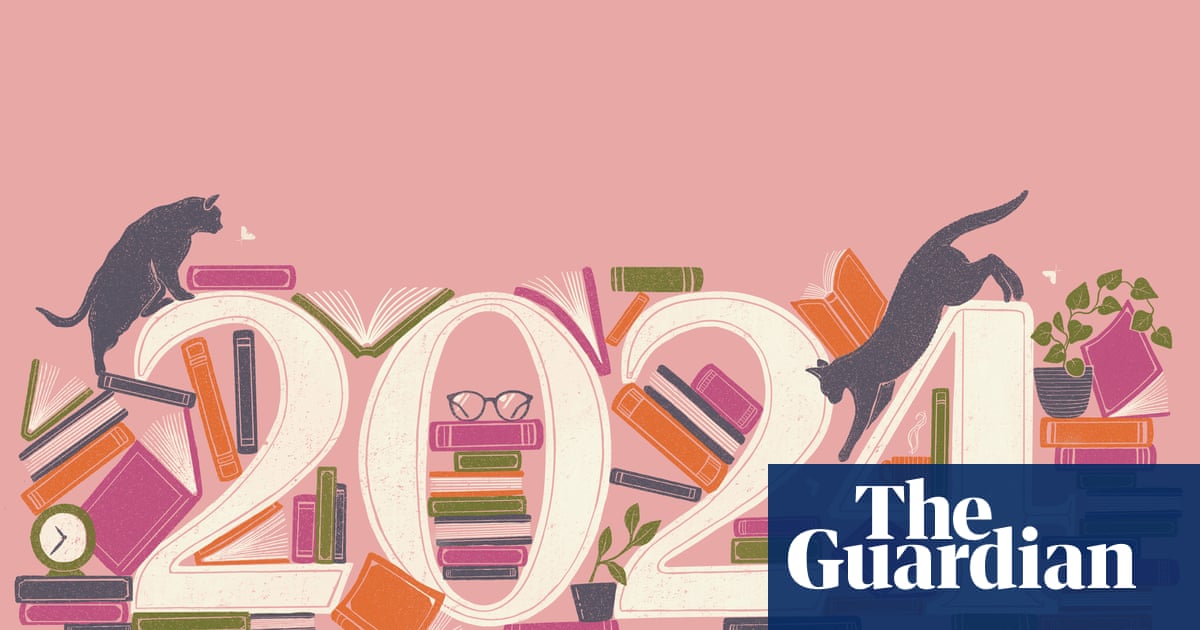
Whether it’s a hangover from a pandemic-disrupted few years, a sign that writers had particularly productive lockdowns, or perhaps it’s the many centenaries coming up – Ulysses, The Waste Land and Jacob’s Room – but 2022 is positively groaning with great novels. We’ll leave the Observer’s peerless debut feature to cover new novels from the UK and largely focus on books published in the first half of the year.
Prepare your hearts, for Douglas Stuart is back. After the extraordinary success of Shuggie Bain, his second novel, Young Mungo (Picador, April), is another beautiful and moving book, a gay Romeo and Juliet set in the brutal world of Glasgow’s housing estates. Also following up a painfully affecting predecessor is Hanya Yanagihara, whose To Paradise (Macmillan, January) gives us three stories far apart in space and time but each unique in their power to summon the joy and complexity of love, the pain of loss. I’m not sure I’ve ever missed the world of a book as much as I miss To Paradise now I’ve left it. A new Kamila Shamsie novel is always worth celebrating, but Best of Friends (Bloomsbury, October) is something else: an epic story that explores the ties of childhood friendship, the possibility of escape, the way the political world intrudes into the personal, all through the lens of two sharply drawn protagonists.
Tilted Axis Press is the home of some of the most incandescent and urgent writing from all corners of the globe. I’d never heard of Monique Ilboudo, who manages to be both Burkina Faso’s ambassador to Scandinavia and a prolific author. So Distant From My Life (September) is the story of Jeanphi, a young man from the fictional west African city of Ouabany. It’s beautifully translated by Yarri Kamara and the best book about the hope and despair of the migrant experience that I’ve read. NoViolet Bulawayo’s second novel, Glory (Viking, March), is set in the fictional state of Jidada. Here the “Father of the Nation” – an old horse – rules over the other farm animals, who narrate the tale. Robert Mugabe is there in all but name in this striking allegory – an Animal Farm that shows how narratives of liberation and self-determination curdle under a dictator’s power. There’s another very different Africa in Marlon James’s Moon Witch, Spider King (Penguin, March), the second in his Dark Star trilogy. Even more gripping and inventive than its predecessor, the story of the 177-year-old witch Sogolon is like Tolkien on ayahuasca.
Two debuts from the States worth looking out for. The Immortal King Rao by Vauhini Vara (Grove Press, June) is a brilliant and beautifully written book about capitalism and the patriarchy, about Dalit India and digital America, about power and family and love. Honorée Fanonne Jeffers is a celebrated poet, but The Love Songs of WEB Du Bois (HarperCollins, January) is her first novel, and what a novel it is. Stretching across generations, it charts the history of an African American family from slavery to the present, all centred on (another) fictional city: Chicasetta, Georgia.
Akwaeke Emezi’s debut, Freshwater, announced them as an explosive new voice in 2018. That they are already on to their seventh book – and this at the age of 34 – shows the frantic energy of their work, the range of their vision. Their third adult novel, You Made a Fool of Death With Your Beauty (Faber, May), is the story of Feyi, an artist, and her best friend, Joy. It follows Feyi through a wild summer of creation and destruction, art and music, and lots of sex. Is Deesha Philyaw’s The Secret Lives of Church Ladies (Pushkin Press, May) a novel? Is it a collection of linked stories? Whatever it is, it’s glorious – the smart, sad and very funny portrait of several generations wrestling with their desires and their faith. Jessica Andrews’s first novel, Saltwater, was wonderful. The follow-up, Milk Teeth (Hodder, July), is even better. A story of young love and desire that’s full of the most gorgeous writing.
Alex Pheby’s Mordew was a stunning success for the dependably brilliant Galley Beggar Press. Now he follows it up with another super-smart piece of literary fantasy, Malarkoi (August), set amid the ruins of Mordew and with the protagonist of the first novel, Nathan Treeves, dead. I love Sandra Newman’s work and the news that she is currently writing Julia, a feminist retelling of Nineteen Eighty-Four, has got me very excited. Before that, though, is The Men (Granta, June), a dazzling work of speculative fiction that imagines a world in which all men, overnight, vanish from the Earth.
Monica Ali’s long-awaited fifth novel, Love Marriage (February, Hachette), was worth the decade it took to arrive. The sharp and independent Yasmin Ghorami is set to marry Joe Sangster, the rakish son of a prominent feminist. This is a proper family saga, both deliciously old-fashioned and full of surprising reversals. Patrick Gale’s latest, Mother’s Boy (March, Headline), delivers a characteristically poised and tender novel about a young man growing up in the shadow of one war and the whispers of the next, with his mother, the indomitable Laura, always there watching over him.
A few final books to look forward to… Guardian football journalist Jonathan Wilson has written a smart and cinematic novella, Streltsov (Blizzard Media, January) about the Soviet football star Eduard Streltsov, arrested on the eve of the 1958 World Cup. If you’re looking for this century’s Ulysses, look no further than Patrick McCabe’s Poguemahone (Unbound, April), a stunningly lyrical novel in free verse that takes place in Margate and in the mind and memories of Dan and Una Fogarty. It may look like a chore at more than 600 pages, but it’s a blast. Perhaps better known until now for her short stories, in These Days (Faber, March) Lucy Caldwell has written a novel of enormous heart; full of luminous passages of prose, this tale of the Belfast blitz is breathtakingly good. Finally, there’s Karen Campbell’s Paper Cup (Canongate, June), the story of a homeless woman making her way across Scotland to return a lost engagement ring. It’s magnificent and devastating and I’m welling up just writing about it.












